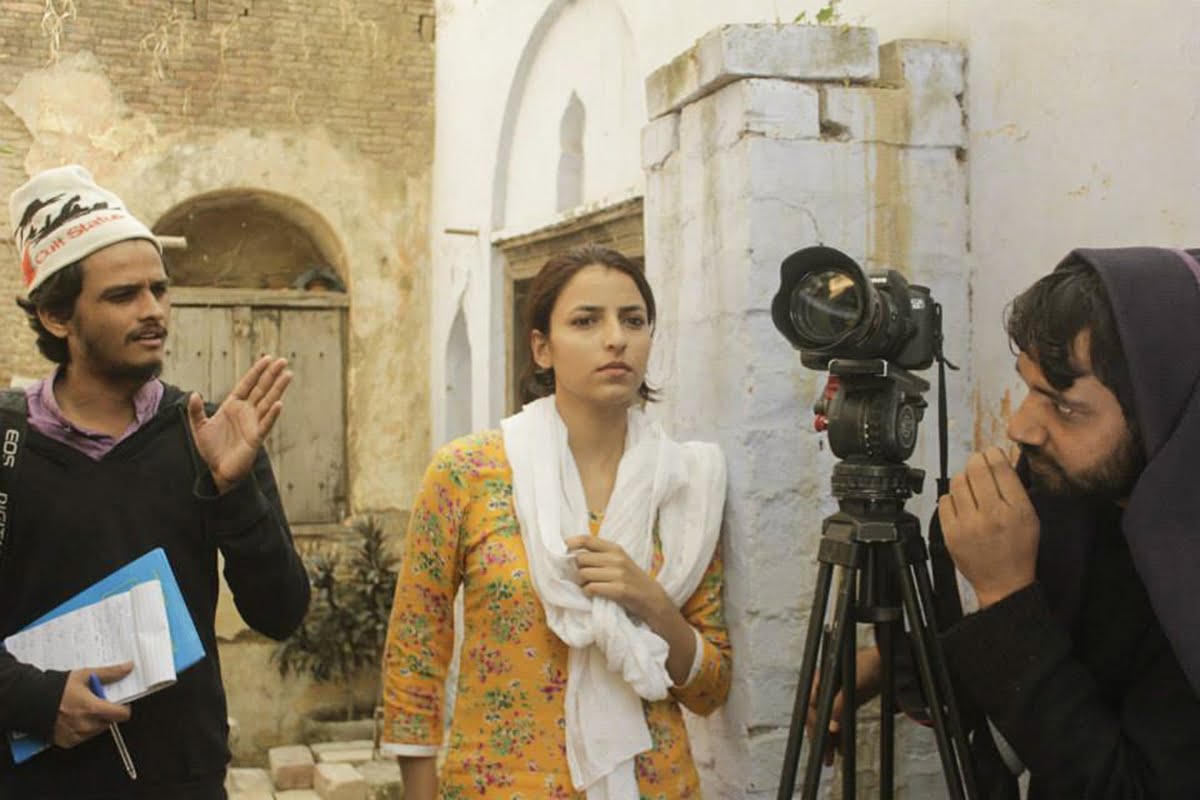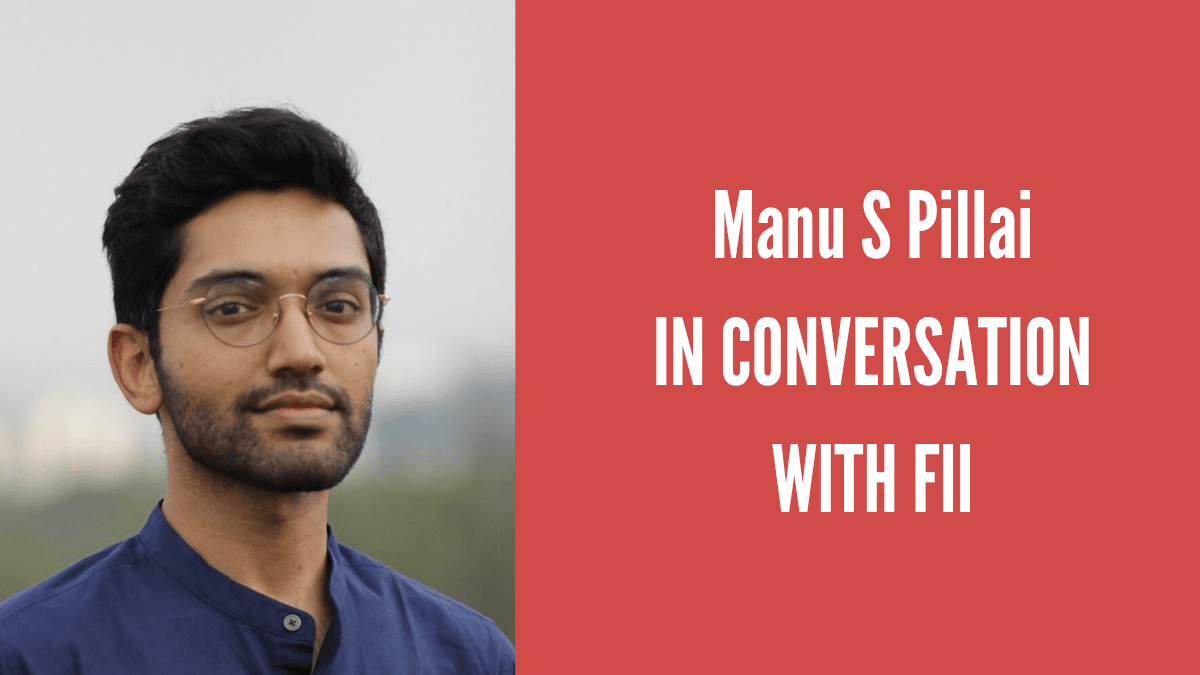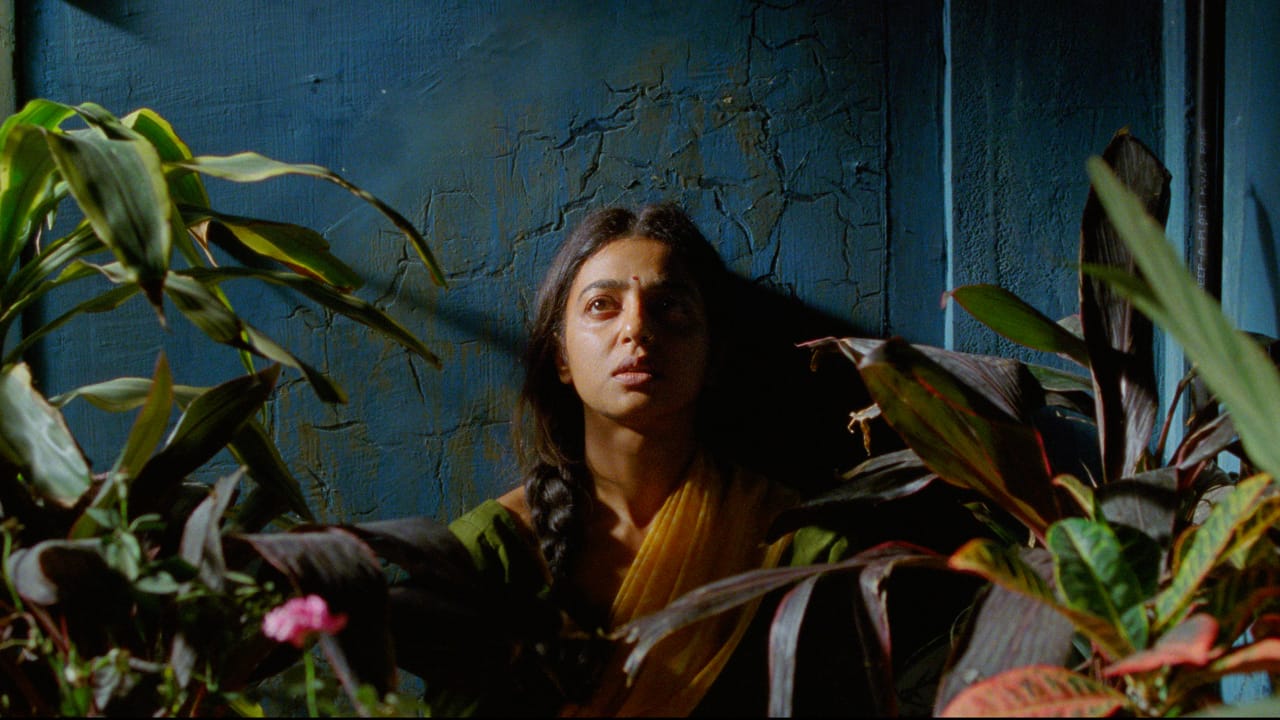Aani Maani is a game that children play in Uttar Pradesh, in which they move in circles while reciting the rhyme Aani Maani. The film Aani Maani is about Bhutto, a kebab seller, and his family, that struggles when a beef ban sends his world into a tailspin. It is as much the story of Tarannum, the wife of Bhutto, especially focusing on her after he comes out of prison for a crime he didn’t commit. Aani Maani is the story of his daily struggle for his family’s upkeep, and how a seemingly inconsequential change in the world of their homes, turns their lives upside down.
The film premiered at MAMI in 2019, and won the International Feature Film Award at International Film Festival Kerala 2019. It was screened at the 11th Indian Film Festival in Bhubaneshwar in 2020.
Below are excerpts from a conversation with the director of Aani Maani, Fahim Irshad:
Q: Tell us about yourself, Fahim. What’s the meaning of your name? What’s the story behind it?
A: My name means intelligent, with Persian-Arabic roots in Faham, which means understanding, and Fahim means knowledgeable. My father was very fond of Persian, so he gave his children Persian names.
Q: Aani Maani, your debut film, premiered at MAMI in 2019, and it won the best film award at IFFK, and you won best director. How can the general public now view Aani Maani? What plans do you have for the film now?
A: If people call me, I will take Aani Maani to their homes, all they need is a DVD player. If they cook and invite me, I will go and show them the film. Because releasing the film is not in my hands. I was able to write it, and somehow make the film, along with my team. Now, wherever possible, we are screening the film at various festivals. That usually generates word of mouth publicity. We are also screening at various campuses, at IIT Bombay, Jawaharlal Nehru University in Delhi, Calicut University, Kozhikode college. The reception has been really good.
Q: Aani Maani, is a love story, but at the same time it’s also a deeply political film. It doesn’t comment on it, but depicts it as a matter of fact. Was it a conscious decision for you?
A: Firstly, we belong to a community that has become depoliticised, and secondly you feel responsible towards those who suffer from hardships, are marginalised, whose lives are never shown in the films. Hence, there is a conscious decision to tell those stories, to show their humanity. But at the same time it need not be propaganda, or preachy, that is also there at the back of my mind. Even if I cannot be objective while writing, it’s necessary to show these stories so that they connect with the general audience.
Q: What is your process of writing, scripting and film making?
A: For writing, I follow characters that grow within me, based on what I have seen or I have met. Then I think of what would be the opening and closing of this story. If I hold these two strands, then I feel the urge to write the story, screenplay, along with the dialogues. No need to write a 4 or 8-pager, if you have the screenplay, then these summaries can be developed later on. I go with the flow. That’s what happened with Aani Maani. Everybody was keen to shoot the film. I didn’t get any feedback on whether further work was required on any aspect of the film. I will be careful here onwards. After the experience of working on my first film, Aani Maani, I now see other films and wish I had worked harder on it. That’s the natural process.
Q: I am interested to know how much of yourself and your life incidents did you draw inspiration from while writing these characters in Aani Maani?
A: Films have inspired me a lot. Sometimes, I am lazy. It takes a lot of effort to make a film. Then I become lenient with myself and don’t push myself too hard. That’s when I indulge and watch other films. That in turn gives me the feeling that I too, can make such films. I see a classic like Andrei Rublev by Tarkovsky and wonder if I have the capabilities to make these films. In recent years, I saw the film Marghe And Her Mother by Mohsen Makhmalbaf and I think if I had worked a bit harder on Aani Maani, and watched this film, I could have made a more powerful film. Not only the Best Debut, I would have won the Golden Peacock, maybe it would have opened at Cannes, who knows!
I like watching films on Second World War. I saw Jojo Rabbit last month, I feel in my past life I must have been a Jew. I love each film that is made on the Holocaust, it leaves me with this feeling of connection and inspiration.
There’s something there, maybe we all get bullied, and fear confrontation, so when I see films that show taking a stand against oppression, sometimes without violent confrontation, I connect with them.
Q: In Aani Maani you show that probably love and compassion counteracts oppression in its own way. Is that how you think one could take the fight forward?
A: To cleanse anything, we use clear water, you cannot use dirty water to wash away the dirt. That’s the fundamental thing: people are compassionate. Society operates on that, maybe people show themselves to be something else in the exterior, however compassionate is inherent, so films could speak to these inherent aspects. So when many people see such films, there is bound to be an impact. We are now pushing for an OTT release for Aani Maani for it to reach more masses.
Q: How did you make an effort to show an equal relationship between your characters in Aani Maani: Tarannum essayed by Priyanka, and Bhutto played by Farrukh? They cook together, put soorma in each other’s eyes. Where do you find such people?
A: When you find concepts such as better half, it’s always about husband and wife. It’s not about a man chasing woman or other way round. It’s the love after a marriage. That’s what I wanted to show: How better halves make sense of the world together. In our society, we are not generally shown married couples showing love. I haven’t seen my parents getting romantic, or holding hands, or saying I love you to each other. The current generation is not like that. They are expressive. Love before marriage is still not easily acceptable, people do not favour it much especially in North India. Then at least it should be okay to love openly after marriage. That’s also missing.

So I went looking for examples of such love in religion and scriptures. The morality that we have constructed around us has only caused more harm, and if you make claims that these moral standards gain credibility in religion, it’s not all true. Helping out, cooking together and sharing responsibilities: we see these examples more often these days. That’s what I have seen in my family, with my parents, my brothers and their wives – they all help each other; they are cooperative. It’s a good change. If we go one degree ahead, maybe that’s how Bhutto and Tarannum are in Aani Maani.
Q: Aani Maani is an excellent portrayal of love, and the performances of the cast is gaining much appreciation. When you introduced this film in Kerala, you had said the film was made with friends and not funds. How instrumental have they been to the creative process?
A: After scripting Aani Maani, I narrated the film to my friends – Farrukh Seyer, and my cameraman, Shailendra Sahu. When we were casting for the wife’s role we were doubtful about her performance and her Urdu diction. Finally I took the call, because both Farrukh and Priyanka had this chemistry after having known each for several years. We did some acting workshops and they both enhanced their craft, for diction, we had someone helping with the accent. Even Neha, who played the sister, comes from a different background was able to get a good grip on the nuances of living in a village and playing her character.
Also read: Film Review: My Happy Family Explores Women’s Agency To Choose Freedom
Even if the films are not political upfront, there are political connotations to the work (such as Aani Maani) that I am interested in, so there is no escaping it… I want to make films that reflect innocence but also retain a political color to them.
Q: Will you be tackling such political issues in your next film and will there be a sequel to Aani Maani?
A: There is not going to be any sequel to Aani Maani. The films that I will direct will be political. Even if the films are not political upfront, there are political connotations to the work that I am interested in, so there is no escaping it. I am not an escapist, I would like to depict the issues in my films. I want to make films that reflect innocence but also retain a political color to them. However, I also can delve into anything. I can even write a Golmaal if needed.
Featured Image Source: IMDB
About the author(s)
Dr. Sneha Krishnan is trained to be a researcher in the interstices of development, health and disasters. One day she grew tired of the world of research that converted people’s life stories into data and evidence, and instead dived deep into the world of telling stories with prose, poetry and photographs. Her poetry, essays and stories have been published in The Conversation, Helter Skelter, Belongg, Medium and The Wire. She also organises the Indian Film Festival of Bhubaneswar (IFFB) and Indian Documentary Film Festival of Bhubaneswar (IDFFB). She has a PhD in Environment Engineering from University College London and Professor of Environmental Studies at Jindal Global University. She can be found on Facebook, Twitter, Instagram and LinkedIn.




